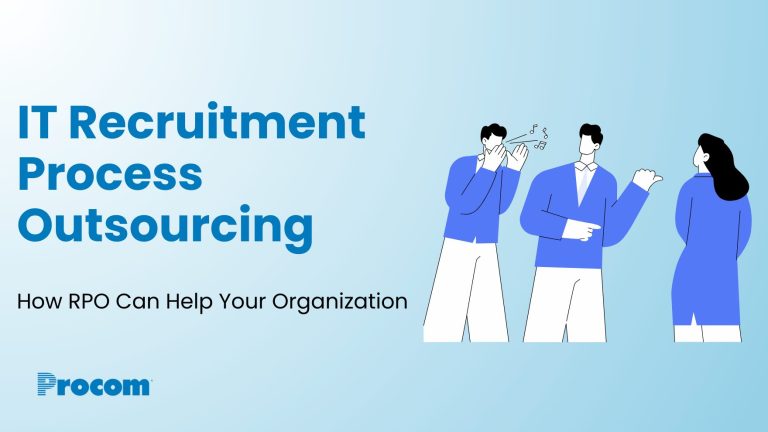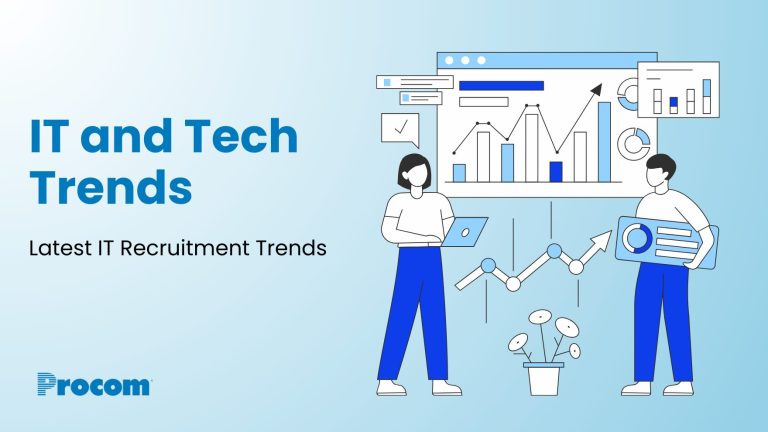Recruitment and workforce trends are constantly changing as technology and society continue to rapidly evolve, and new data raises the bar on how to attract talent as culture catches up to compensation as an influencing factor.
Procom surveyed 1,740+ contingent and permanent workers across the United States and Canada to uncover what’s most important to them amidst heightened expectations, competition and uncertainty.
Company culture is catching up to compensation as a top talent priority
Conventional wisdom maintains that pay rate and salary are primary factors in determining whether someone accepts a contract or permanent position. As monetary compensation increases have spread across the market, however, cultural factors such as collaborative work environments, meaningful work and flexibility have begun to show increased influence on talents’ decisions to accept an assignment – or to end one early.
Top 5 Factors influencing talents’ acceptance of assignments in order of importance
The following factors are very or extremely important to talent:
1. Maximum compensation (68%)
2. Collaborative/supportive work environment (66%)
3. Minimal commute (66%)
4. Meaningful work (65%)
5. Schedule flexibility (65%)
Statistically speaking, the top 5 responses are very close; however, the culture and experience elements of an assignment are clearly catching up to compensation as a driving factor in accepting or rejecting an opportunity.
Talent also lists the following factors as very or extremely important:
6. A positive interview experience (62%)
7. Up-to-date tools and technologies (56%)
8. Company stability (55%)
9. Hybrid-work opportunities (51%)
10. Professional development/upskilling opportunities (50%)
11. Company commitment to Diversity, Equity and inclusion (48%)
12. Potential for health/wellbeing benefits (47%)
13. Frequency of pay (34%)
14. In-person work opportunities (33%)
Gen Z seeks the bigger picture
When accepting an assignment, our data indicates Gen Z workers are more interested in opportunities with companies that:
- Provide career development opportunities and upskilling opportunities, with the hope of eventual access to leadership positions.
- Are accountable for their commitment to a diverse workforce through Diversity, Equity and Inclusion programs.
- Consider the candidate experience and provide a positive interview experience and hiring process.
More experienced workers consider current environment
Millennials, Gen X and Baby boomer workers are more interested in opportunities with:
- Collaborative work environments
- Meaningful work
- Most up to date tools and technologiesProvide a positive interview experience.
- A minimal commute
In the New World of Work, organizations can improve worker engagement by focusing on the overall talent experience, rather than pay.
What It Takes to Attract (and Retain) Top Talent
As organizations fine-tune their recruitment process, they must also focus on the long-term goal of retaining talent. It starts with writing accurate and engaging job descriptions that clearly define expectations, align with the candidate’s skills, and showcase career growth potential. Once hired, potential candidates need access to robust training programs that not only boost immediate performance but also support long-term career advancement.
Work-life balance and employee well-being are no longer perks—they’re expectations. Companies that prioritize these factors, alongside continuous learning and opportunities for professional development, will see higher employee productivity and stronger retention.
By focusing on key factors that influence talent decisions, both during the hiring stage and throughout the employee lifecycle, organizations can improve hiring outcomes and reduce turnover. The competition for talent is fierce, but with a thoughtful approach, it’s possible to stand out and keep the best people.





